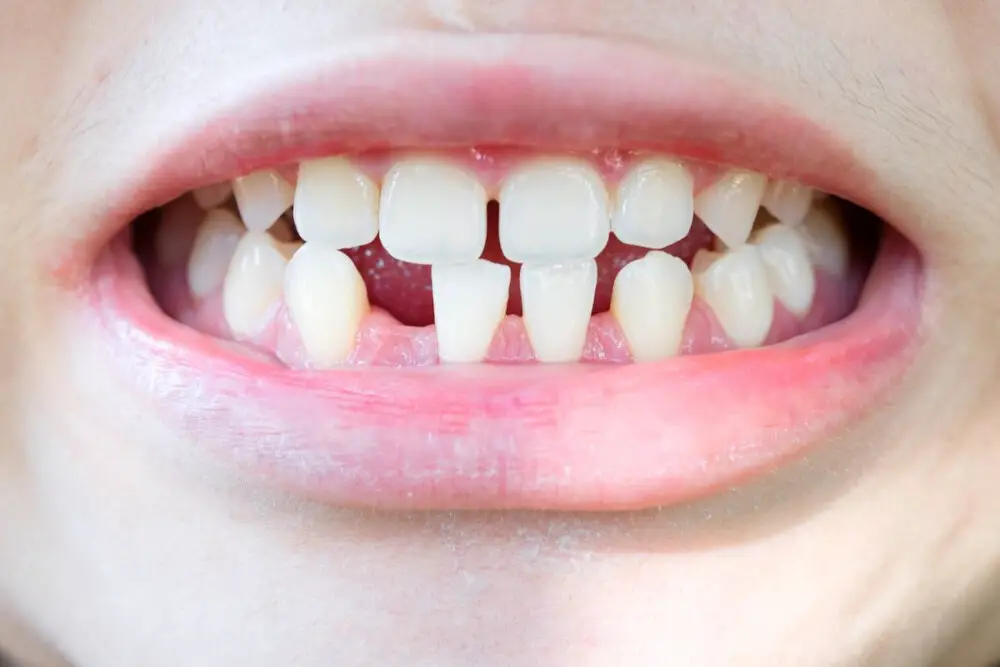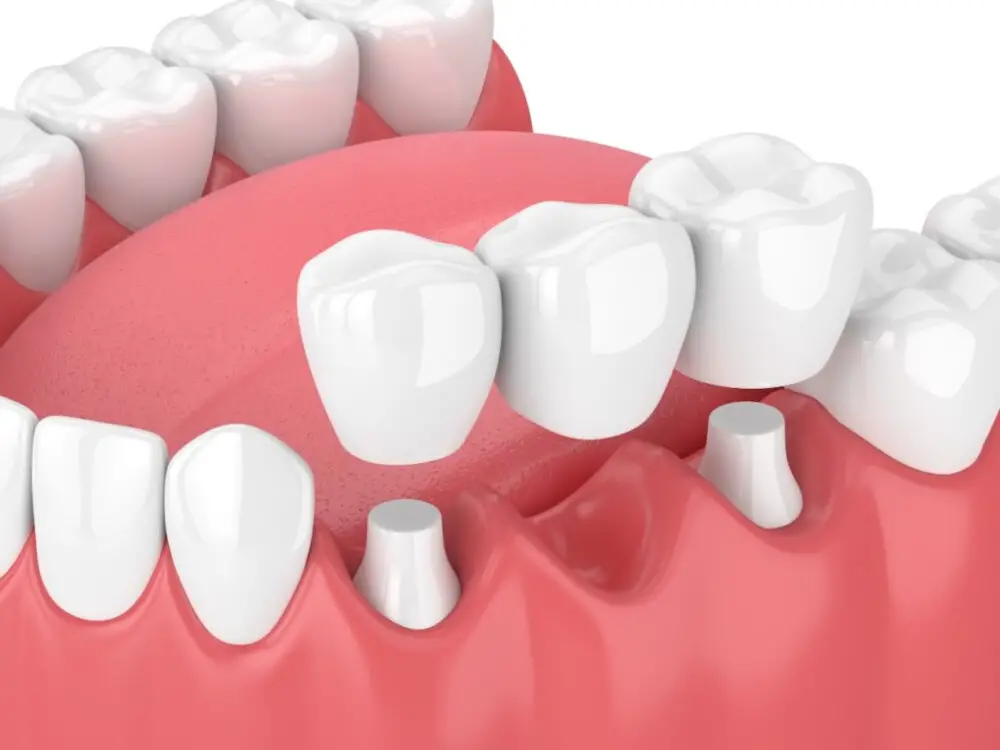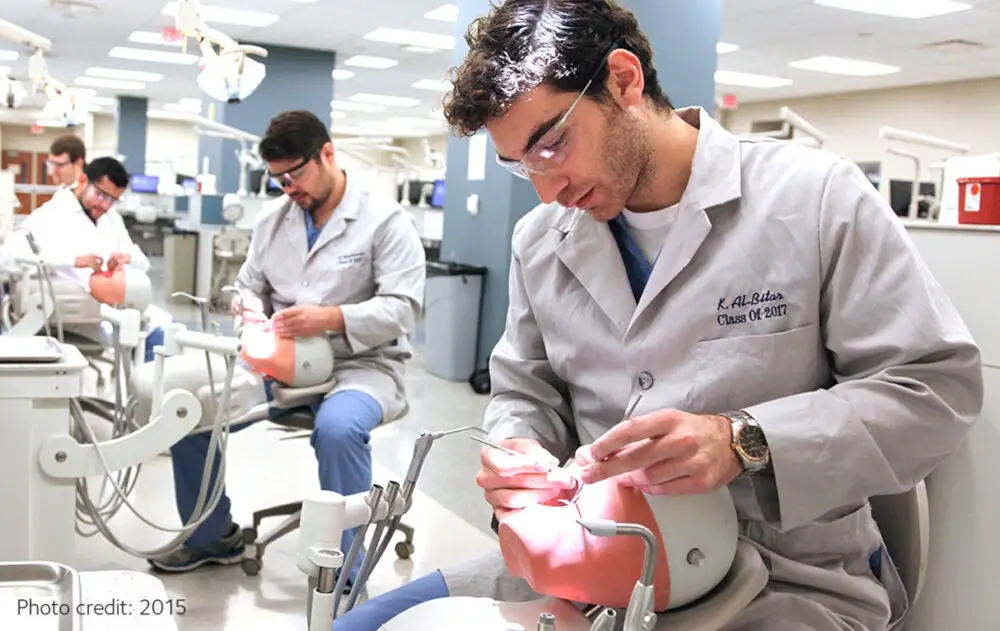When to Stop Worrying About Food Getting Stuck in Wisdom Teeth Holes: A Comprehensive Guide

Wisdom teeth, also known as third molars, are the last set of teeth to emerge in a person’s mouth, usually during their late teens or early twenties. These teeth can cause discomfort, pain, and even infection if they don’t come out properly. One common issue that people with wisdom teeth face is food getting stuck in the holes left behind after extraction. While this is a common problem, it’s important to know when to stop worrying about it and how to prevent it from happening. In this comprehensive guide, we will explore the factors that affect food getting stuck in wisdom teeth holes, how to prevent it, and when it’s time to seek medical attention. One of the most important things to understand about wisdom teeth is that they don’t always come out properly. In many cases, they can become impacted or partially emerged, which can lead to a range of dental problems. When wisdom teeth are removed, the holes left behind can be a breeding ground for bacteria, which can lead to infection and other complications. While it’s natural to worry about food getting stuck in these holes, it’s important to know that it’s not always a cause for concern. Understanding the factors that contribute to food getting stuck in wisdom teeth holes can help you determine when to take action and when to let it go.
Wisdom teeth, also known as third molars, are the final set of teeth that emerge in the back of the mouth in early adulthood. These teeth can cause problems due to their location and size, as they often don’t have enough room to properly emerge. This can lead to impacted wisdom teeth, which can cause pain, swelling, and infection. In addition, wisdom teeth can create pockets between the tooth and gum, allowing food and debris to become trapped and potentially leading to decay and gum disease. It’s important to monitor the health of your wisdom teeth and seek treatment if necessary to avoid further complications.
When you have your wisdom teeth extracted, it is common to experience some discomfort, pain, and swelling. However, the real concern begins when the food gets stuck in the wisdom teeth holes. The reason being, the hole is an open wound, and food particles can get trapped inside, leading to infection or inflammation. Moreover, the food particles can cause bad breath and taste, making it difficult to maintain oral hygiene. In some cases, the trapped food can also cause the formation of a blood clot, leading to a condition called dry socket, which can be incredibly painful. Therefore, it is essential to take proper care of your oral hygiene after wisdom teeth extraction and avoid any food particle getting stuck in the hole.
How to Know if Food is Stuck in Your Wisdom Teeth Holes

One of the most common concerns for people who have recently had their wisdom teeth removed is the possibility of food getting stuck in the extraction sites. This can cause discomfort, bad breath, and even infection if left untreated. Thankfully, there are several ways to tell if food is stuck in your wisdom teeth holes. One of the easiest ways is to simply run your tongue over the area and see if there are any rough or bumpy spots. If you feel something that shouldn’t be there, it’s likely that food has become trapped in the hole. Another sign to look out for is persistent bad breath or a bad taste in your mouth, which can indicate that there is food rotting in the extraction site. If you do notice that food is stuck in your wisdom teeth holes, it’s important not to panic. While it can be uncomfortable, it’s usually not a cause for alarm. There are several things you can do to help dislodge the food, such as rinsing your mouth with warm saltwater or using a water flosser to flush out the area. It’s important to be gentle and not try to forcefully remove the food, as this can damage the healing tissue and cause further complications. If you’re unsure about how to safely remove food from your wisdom teeth holes, it’s always best to consult with your dentist or oral surgeon for guidance.
Physical symptoms can be a clear indication of food getting stuck in wisdom teeth holes. These symptoms may include pain or discomfort in the affected area, swelling, inflammation, and bleeding. The pain can range from mild to severe, and it may be accompanied by a headache or fever. The swelling and inflammation can be visible and can make it difficult to open the mouth or chew food. The bleeding may occur when food particles irritate the gum tissue around the wisdom teeth. In some cases, the physical symptoms can be so severe that they require medical attention. It is important to be aware of these symptoms and to seek treatment if they occur.
Experiencing discomfort while eating or drinking is a common issue that arises after wisdom teeth removal. This discomfort can be caused by different factors such as inflammation, soreness, or infection of the affected area. It can lead to difficulty in chewing or swallowing, which may result in a loss of appetite. Additionally, the sensitivity of the gum tissues around the wisdom teeth holes can cause pain, especially when consuming hot or cold drinks. The discomfort can be managed by taking pain medication, using ice packs, and avoiding certain foods until the area has healed. It is important to follow the instructions provided by the dental professional and attend follow-up appointments to ensure proper healing and avoid any complications.
One of the most common issues associated with wisdom teeth holes is bad breath or a persistent unpleasant taste in the mouth. Food particles and bacteria can easily become trapped in the crevices left by wisdom teeth extraction, leading to the buildup of plaque and the formation of foul-smelling gases. This can be particularly frustrating for those who are diligent about oral hygiene but still struggle with bad breath or an unpleasant taste in the mouth. Fortunately, there are a number of steps that can be taken to address these issues, including regular brushing and flossing, the use of mouthwash, and regular visits to the dentist for professional cleanings.
When to Seek Professional Help

If you have been experiencing frequent pain or discomfort in your wisdom teeth area, it is essential to seek professional help. Wisdom teeth removal is a common dental procedure that millions of people undergo every year. However, if you have persistent pain or swelling in the area, it may indicate that there could be an infection or other complications. Only a dental professional can accurately diagnose the issue and recommend the best course of action. Delaying treatment can lead to more severe problems, so it is crucial to seek help as soon as possible. Another sign that you should seek professional help is if you notice any unusual changes in your mouth, such as new bumps or lumps, bleeding, or unusual discharge. These symptoms could indicate a range of conditions, including oral cancer. While oral cancer is not as common as other dental issues, it is still a significant concern for dental professionals. Early detection is essential for successful treatment, so it is crucial to schedule regular dental checkups and seek help if you notice any unusual changes in your mouth. In general, it is always better to be safe than sorry when it comes to dental health, so if you have any concerns or questions, don’t hesitate to seek professional help.
One of the most common complications of wisdom teeth extraction is infection. Signs of infection may include redness or swelling around the extraction site, fever, foul taste or odor in the mouth, pus or discharge coming from the wound, and difficulty opening the mouth. If any of these symptoms are present, it is important to contact a healthcare professional immediately. Infection can spread quickly and lead to more serious complications if left untreated. In some cases, antibiotics may be necessary to clear the infection, and additional treatment may be required to address any underlying issues causing the infection.
Chronic pain or discomfort in the wisdom teeth area can be a debilitating and frustrating experience for many individuals. The pain can range from a dull ache to sharp, shooting pains, and can be exacerbated by chewing or even talking. The discomfort can also lead to difficulty opening the mouth fully or a feeling of tightness in the jaw. Chronic pain or discomfort in the wisdom teeth area can be caused by a variety of factors, including impacted wisdom teeth, infection, or gum disease. If left untreated, the pain can significantly impact an individual’s quality of life, so it is important to seek medical attention if you are experiencing any persistent pain or discomfort in this area.
One common issue that people may experience after wisdom teeth removal surgery is difficulty in opening their mouth or swallowing. This can be a very uncomfortable sensation and may persist for several days after the procedure. Generally, this is caused by inflammation and swelling in the affected area, which can limit the mobility of the jaw muscles and make swallowing painful. To alleviate this discomfort, patients are advised to rest and avoid strenuous activities, apply ice packs to the affected area, and take pain medication as prescribed by their dentist or oral surgeon. Ultimately, with proper care and patience, the swelling and discomfort should subside, allowing patients to resume normal activities and enjoy their favorite foods without any issues.
Home Remedies for Food Stuck in Wisdom Teeth Holes

Food getting stuck in wisdom teeth holes is a common problem that many people face. It can be painful and uncomfortable, and if left untreated, can lead to further complications such as infections. Fortunately, there are several home remedies that can help alleviate this problem. One such remedy is warm salt water rinses. Simply dissolve a teaspoon of salt in a cup of warm water and swish it around your mouth for a minute or two. The salt water helps to reduce inflammation and kill bacteria, which can help to prevent infections and promote healing. Another effective home remedy for food stuck in wisdom teeth holes is the use of a syringe or water flosser. This method involves using a syringe or water flosser to squirt water into the affected area to dislodge any food particles. It is important to be gentle when using this method, as too much force can cause further damage to the gums and teeth. Additionally, it is important to use only lukewarm water and avoid using any mouthwash or other chemicals, as they can irritate the area and cause further discomfort. These home remedies can provide relief for those suffering from food stuck in wisdom teeth holes and can help to prevent further complications. However, it is important to consult a dentist if the problem persists, as they can provide more targeted treatment and ensure that the underlying issue is addressed.
Rinsing with salt water is a simple yet effective way to promote healing and prevent infection in wisdom teeth holes. The natural antibacterial properties of salt help to reduce inflammation and kill harmful bacteria that may have accumulated in the hole. Additionally, the gentle swishing motion of the salt water can dislodge any food particles or debris that may be stuck in the hole, reducing the risk of infection and promoting faster healing. To prepare a salt water rinse, simply mix a teaspoon of salt with a cup of warm water and swish it around your mouth for 30 seconds before spitting it out. This simple and inexpensive home remedy can be done several times a day to keep the wisdom teeth holes clean and healthy.
One effective way of cleaning wisdom teeth holes is by using a water flosser. This device uses a stream of water to remove food particles and bacteria from the gaps in your teeth. It’s particularly useful for reaching areas that are difficult to access with traditional floss. To use a water flosser, simply fill the reservoir with warm water, place the tip of the device in your mouth, and turn it on. Adjust the pressure to suit your needs, and move the tip along your gumline, angling it towards your teeth. This will help to dislodge any debris that may be stuck in your wisdom teeth holes and keep your mouth healthy and clean.
Clove oil, derived from clove plants, is a natural remedy used for various dental problems, including wisdom teeth holes. It has antibacterial, anti-inflammatory, and analgesic properties, making it an effective pain reliever and infection fighter. Applying clove oil to the affected area can help alleviate pain, reduce swelling and redness, and prevent bacterial growth. To use, mix a few drops of clove oil with a carrier oil, such as coconut or olive oil, and apply it to the wisdom teeth hole using a cotton swab. However, it is important to note that clove oil should be used in moderation and under the guidance of a dentist or healthcare professional, as excessive use can cause irritation or allergic reactions.
Prevention Tips

Wisdom teeth extraction is a common dental procedure that requires proper care and maintenance to prevent complications such as food getting stuck in wisdom teeth holes. Fortunately, there are several strategies you can adopt to prevent this from happening. One of the most effective ways of preventing food from getting stuck in wisdom teeth holes is to rinse your mouth with salt water regularly. This helps to keep the area clean and free from bacteria that may cause infections. You can also use an antiseptic mouthwash to kill germs and freshen your breath. Another effective strategy is to avoid consuming certain foods that are more likely to get trapped in your wisdom teeth holes. These foods include seeds, popcorn, nuts, and sticky candy. Instead, opt for soft foods such as yogurt, mashed potatoes, and soup. You can also use a toothbrush or floss to clean the area around the wisdom teeth holes after every meal. This helps to dislodge any food particles that may be stuck and prevent the growth of bacteria. By adopting these prevention tips, you can ensure that your wisdom teeth extraction recovery is smooth and free from complications.
Maintaining proper dental hygiene is crucial for overall oral health, regardless of whether you have wisdom teeth or not. Brushing your teeth twice a day with a fluoride toothpaste and flossing at least once a day are essential practices to remove plaque and prevent cavities. Additionally, incorporating an antiseptic mouthwash into your daily routine can help kill bacteria and freshen your breath. It’s also important to visit your dentist regularly for check-ups and cleanings to catch any potential issues early on. By prioritizing dental hygiene, you can improve the health of your teeth and gums, and potentially avoid complications such as food getting stuck in wisdom teeth holes.
When recovering from wisdom teeth extractions, it’s essential to avoid hard or sticky foods that can disrupt the healing process. These types of foods can get lodged in the holes where your wisdom teeth once were, causing irritation, pain, and even infection. Instead, opt for soft, easy-to-chew foods like soups, mashed potatoes, and smoothies. This will help you avoid the discomfort of food getting stuck in your wisdom teeth holes while also providing the nutrients your body needs to heal. Remember, taking care of your diet during this time is crucial to ensure a speedy and smooth recovery.
Regular dental checkups are important for maintaining good oral health and preventing potential dental issues. During these checkups, dentists can detect any problems early on and provide necessary treatment before they become more serious. This can include identifying cavities, gum disease, or even impacted wisdom teeth. Additionally, regular cleanings can remove plaque and tartar buildup that can lead to tooth decay and gum disease. It is recommended to visit the dentist every six months for a checkup and cleaning, but those with specific dental concerns may need more frequent visits. Taking care of your oral health through regular dental checkups can ultimately save you time, money, and discomfort in the long run.
The article \When to Stop Worrying About Food Getting Stuck in Wisdom Teeth Holes: A Comprehensive Guide\ covers everything you need to know about wisdom teeth and the holes they leave behind after removal. It explains that it’s normal to experience some bleeding, swelling, and discomfort after the removal of wisdom teeth, and how to deal with it. The article then goes on to discuss how long it takes for the holes to heal, the importance of proper aftercare and hygiene, and how to avoid food getting stuck in the holes. It also outlines the signs of an infection and when to seek medical attention. Overall, this comprehensive guide will help you understand the healing process and make the recovery period after wisdom teeth removal as comfortable and stress-free as possible.
It is highly recommended to seek professional help if you are experiencing any discomfort or pain related to wisdom teeth holes. Ignoring these symptoms may lead to severe complications, including infections and abscesses. A dentist or oral surgeon can examine the wisdom teeth holes and determine if any treatment is needed, such as cleaning or extraction. Don’t hesitate to seek help if you are unsure about the condition of your wisdom teeth holes. Remember that your oral health is an essential part of your overall well-being, and seeking professional help when necessary can save you from potential long-term impacts on your oral health.
Conclusion

In conclusion, after going through this comprehensive guide, it is evident that worrying about food getting stuck in wisdom teeth holes is a common concern for many people. However, it is important to note that this issue can be prevented by maintaining good oral hygiene practices and seeking professional dental care. It is also crucial to understand that the healing time for wisdom teeth extraction varies from person to person and may take up to several weeks. Therefore, it is necessary to be patient and follow the aftercare instructions provided by your dentist or oral surgeon. With proper care and attention, you can ensure a smooth and comfortable recovery process and minimize the chances of food getting stuck in your wisdom teeth holes. It is always better to be safe than sorry, and taking care of your oral health should be a top priority to avoid any complications or discomfort.






